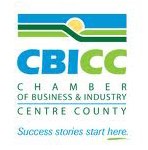State College, PA – Most Americans are lured into saving for retirement with traditional qualified retirement plans, such as IRA’s and 401(k)s. They are convinced by financial advisors to contribute pre-tax dollars to 401(k) plans or place tax-deductible contributions into IRAs because of the tax advantages during the contribution and accumulation phases of their retirement planning. They seem to ignore the two most important phases – when withdrawing your money for retirement income, and when you pass away and transfer any remaining funds to your heirs.
One of the original IRA tenets held that deferring tax until retirement was advantageous because funds would likely be taxed at a lower rate. That is no longer axiomatic. You may well live out your retirement in the same or higher tax bracket if you accumulate a respectable retirement nest egg. In fact, effective tax rates will likely be higher in the future. So why postpone the inevitable and increase your tax liability?
As a financial strategist and retirement specialist, when we discover how much money our first-time clients have accumulated in yet-to-be-taxed IRAs and 401(k)s, we often ask them, “Are you planning YOUR retirement or Uncle Sam’s?”
We maintain it doesn’t make sense to postpone tax for some perceived advantage in the future. You should be aware that your IRA, pension, and 401(k) benefits will probably be taxable at a higher rate at retirement.
As many people approach retirement, they find themselves with a free and clear home. So, they no longer have the mortgage interest expense deductions. Their children have matured into adults, so they can no longer claim them as dependents. They are no longer contributing to tax-deductible retirement plans. You’ve usually been holding off on home improvements and clients tend to do most of their traveling right after retiring. Thus, in retirement, they find themselves in as high or higher tax bracket as they were during their earning years even if they have lower income.
If you were a farmer, would you rather save tax on the purchase of your seed in the springtime and pay tax on the sale of your harvest in the fall, or would you rather pay tax on the seed and sell your harvest without any tax on the gain? I would prefer tax-advantaged harvests.
There is a means by which you can draw out your retirement free of income tax. Not only that, but there is also a means to avoid paying tax on up to 85 percent of your Social Security benefits at retirement.
Two quick examples would be qualified charitable distributions (QCD) or Roth conversions in advance. If you would like to learn more about how these two strategies could help you save taxes throughout retirement, please feel free to reach out.




 Clarity Coaching Tips
Clarity Coaching Tips Common Sense Videos
Common Sense Videos It’s Your Money
It’s Your Money
